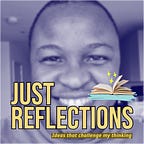Do you set New Year’s resolutions and then give up on them by March?
If your answer is yes then you’re not alone. When January comes around many people get a huge burst of motivation to make sweeping changes in their lives. But this motivation is fleeting and fails to stand up against the torrential wind that is our indiscipline. So does this mean we should quit making new year’s resolutions? I don’t think so. On the contrary, we can use this fact to our advantage.
Here are two strategies that will make your resolutions yield results this year:
Set goals that take three months or less to achieve
Give all your effort in the first three months to entrench the habit
Set a theme for the year
Set goals that take three months or less to achieve
Most times when we fail to get things done, it’s because we don’t have the motivation. Do you know what you have at the start of the year? Tons of motivation. At least enough motivation to take you to March.
So here’s an idea. Instead of setting goals that take the entire year to achieve, set goals that only need three months or less to achieve. That way, you can burn through the bulk of the task while you still have the fire of the new year. By the time March comes around and your motivation is dwindling, it won’t matter much because you’ve already done 90% of the work or you’re on your way towards completing your third small goal. Then you can fail all you want for the rest of the year, you already have resolutions in the bag. But hopefully, those wins will have fired you up enough to keep you going with other small wins.
Back in 2019, I was interviewing with a company that had given me some time to learn C#. I interviewed with them in November 2018, they liked me but didn’t like the fact that I didn’t know C# so they gave me some books and well wishes and said let’s meet again after a few months. I spent December trying hard to study, but it just wasn’t sticking. Then January came around and the New Year’s resolutions bug bit me and I went hard on those books. By the time the motivation died in March, I’d done most of the work I needed to pass the next stage of the interview and I did. (I didn’t get the job in the end, but that’s a story for another day)
Set goals that need three months, burn all your motivation on them and you’ll have some check marks in March.
Give all your effort in the first three months to entrench the habit
Here’s a different idea; they say it takes about 21 days to build a new habit. Maybe this is a debunked myth, so let’s be conservative and say it takes 50 days.
Find a habit you want to adopt. The key here is to find something small and realistic. Then use the new year's motivation peak to completely obsess over it until March. I’m talking going real hard. Eat, sleep and dream this thing. Just until the new year’s motivation burns up. There’s a good chance that by the time March comes around and the motivation runs out, the habit will be entrenched and you’ll continue it.
This is how I developed a reading habit in 2020. I wanted to read more so between January and March, I always either had a book in my hand or headphones on listening to an audiobook. Regardless of what I was doing. When March came around and the motivation was gone, I had fallen in love. I found the books that I enjoy and I developed a routine. So I just continued. Sure, it was at a much slower pace, but by the end of the year, I had gone from dosing off on the first page to reading 28 books in total. I didn’t need the motivation to push me anymore. It was now in me.
Set a theme for the year
Instead of setting specific, rigid goals, consider creating a framework to guide your personal growth and development.
It's important to remember that we often change and grow throughout the year, and it may be unrealistic to expect ourselves to adhere to the same goals we set at the beginning of the year. A more effective approach is to set a theme for the year, which serves as a guiding principle for decision-making and helps to shape your overall direction.
Achieving a goal only changes your life for the moment. What you really need is to change the systems that lead to those goals. Having a theme is like having a shortcut for decision-making. When you get to a fork in the road, you will have a framework for making a decision. Reminding you to be a little different, even in seemingly insignificant moments. If this year is the “Year of Courage” for you, instead of saying I will do 12 courageous things this year (one for each month). Say, “When I have to choose between two things, I will always choose the more courageous one, no matter how small.” The result will be that your year will be more courageous than normal.
By focusing on the systems that lead to your goals, rather than the goals themselves, you'll be able to make progress even in small, seemingly insignificant moments. The key is to maintain a positive trend, rather than striving for precise outcomes.
I’ve written more about having a year theme. You can read about it here.
Conclusion
The key takeaway is that to make significant changes in your life, it's important to approach the process with patience and a long-term perspective. Utilize moments of high motivation to achieve small victories, and when motivation wanes, try to maintain progress even if it's at a slower pace. Eventually, the changes will become a part of your identity, requiring less effort to maintain. And after some time, you can relax and enjoy the progress you've made. Happy New Year!










